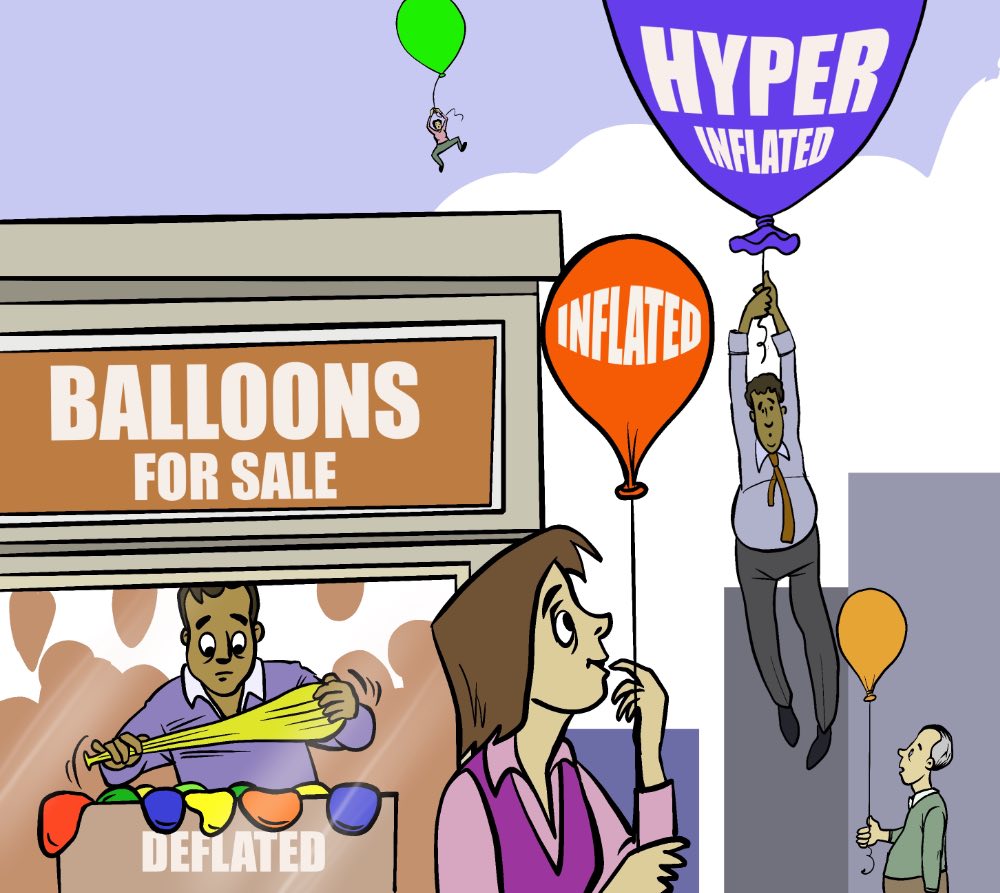SUBSCRIBE
Enter your Name and Email address to get
the newsletter delivered to your inbox.
Please include name of person that directed you to my online newsletter so I can thank them personally.

Glenda Moehlenpah, CPA, CFP®
Financial Bridges
13319 Poway Road, #506
Poway, CA 92064
Phone: 858-486-0100
Email: glenda@financialbridges.com
Website: www.FinancialBridges.com

With all the government stimulus packages in 2020 to help offset the impacts of the coronavirus pandemic, many economists are discussing what it all means for the U.S. economy in the short- and long-term. They use words like inflation, deflation, and hyper-inflation. We’ll explain what these terms mean.
With the multi-trillion-dollar stimulus packages pumping money into the economy, this new infusion of cash could lead to an increase in demand. The excess money means more people are going to spend. Inflation can be slowed or avoided if the excess money is saved and not spent.
Inflation isn’t entirely bad unless it happens quickly creating hyper-inflation.
While the U.S. economy remains healthy, understanding these basic economic principles you’ll now better understand what economists are saying
Enter your Name and Email address to get
the newsletter delivered to your inbox.
Please include name of person that directed you to my online newsletter so I can thank them personally.
Enter your Name, Email Address and a short message. We'll respond to you as soon as possible.
Financial Bridges and LTM Marketing Solutions, LLC are unrelated companies. This publication was prepared for the publication’s provider by LTM Marketing Solutions, LLC, an unrelated third party. Articles are not written or produced by the named representative.
The information and opinions contained in this web site are obtained from sources believed to be reliable, but their accuracy cannot be guaranteed. The publishers assume no responsibility for errors and omissions or for any damages resulting from the use of the published information. This web site is published with the understanding that it does not render legal, accounting, financial, or other professional advice. Whole or partial reproduction of this web site is forbidden without the written permission of the publisher.